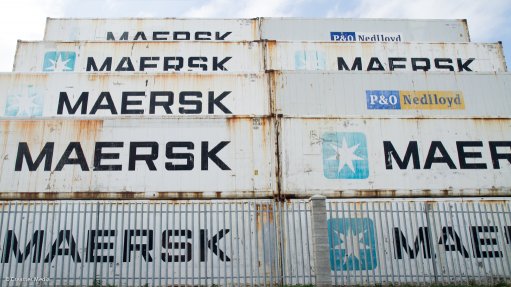
Photo by: Duane Daws
Transnet National Ports Authority’s (TNPA’s) alleged “anticompetitive” interpretation of the National Ports Act was put before the Ports Regulator of South Africa during a hearing, in Durban, on March 5 and 6, after complainant Siyakhupuka Investment Holdings argued that an earlier application was “wrongfully declined”.
In 2008, Siyakhupuka requested a concession to operate a container terminal in the Port of Richards Bay, but was denied by the parastatal.
The group said its concession application was motivated by the need to address the “blockage” of economic development in Northern KwaZulu-Natal as a result of the lack of a container facilities in Richards Bay, which prevented further industrial development.
It argued further that exports of the region’s agricultural produce would also be enhanced by the establishment of containerised cargo facilities in Richards Bay, allowing fresh export produce to be stored in refrigerated facilities.
However, Siyakhupuka MD Jan Scheepers, who once held the positions of Port Elizabeth port manager, Richards Bay port manager and Portnet divisional executive, argued that Transnet, in its dismissal of the application, had not applied the content of the law and had attempted to exclude entities other than TNPA from owning terminal concessions.
During the hearings by the Ports Regulator, the group would argue that Transnet had thus disregarded its legal obligations in declining Siyakhupuka's earlier application.
“During [our] seven years of challenging TNPA's decision, we have encountered numerous arguments where the ports authority disregarded the stipulations of the National Ports Act.
“The premise for Siyakhupuka's complaint to the regulator is, therefore, based on the fact that the ports authority is practicing anticompetitive behaviour,” he said in a statement.
The matter was also referred to the Competition Commission and was currently under review.